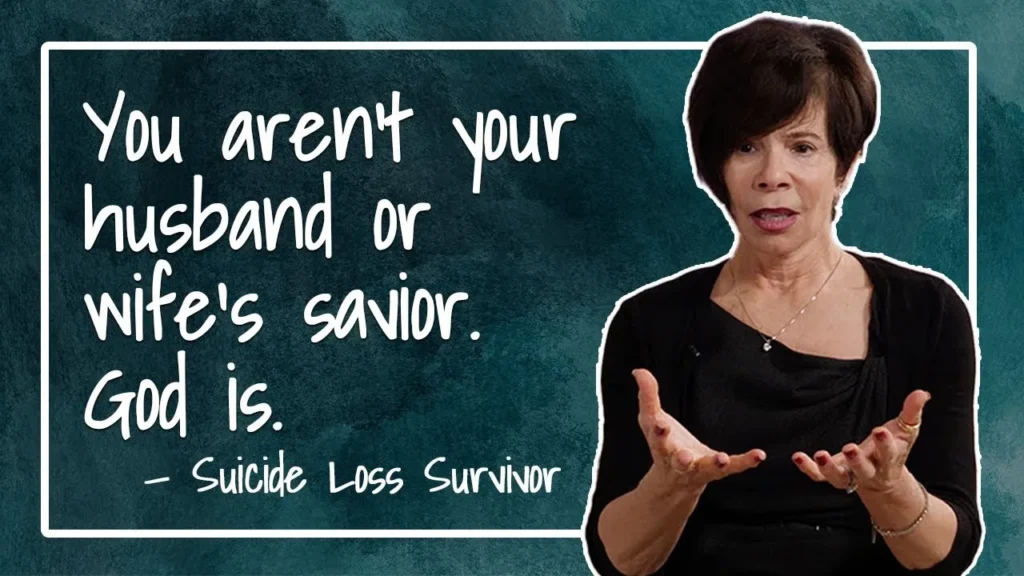Somewhere I heard that suicide is an “unforgivable sin.” That people who kill themselves won’t get into heaven. Is that true? My nephew — an honor student, accomplished athlete, and respected leader of his church youth group — recently took his own life. The entire family is struggling with overwhelming grief, pain, guilt, confusion — and agonizing questions about the fate of his soul.
ANSWER:
We’re so sorry for your loss. Before getting into doctrinal questions, we want to encourage you and the rest of your family to do everything possible to bind up your wounds.
Keep yourselves from falling into despair and self-blame
It’s important to fight any impulse to withdraw and clam up about the terrible thing that has happened to your family. How?
- Start by telling each other that your nephew’s death was not your fault. Do this over and over again.
- Call our Counseling department at 1-855-771-HELP (4357) for a free over-the-phone consultation. They’d love to talk with you, pray with you, and offer ways you can move forward.
- Get help from others who’ve walked this path before you. There are several reputable organizations and ministries that offer support groups for parents and family members of suicide victims, including:
- SAVE (Suicide Awareness Voices of Education)
- The American Academy of Child & Adolescent Psychiatry
- The American Association of Suicidology
- The Yellow Ribbon Suicide Prevention Program
That said, let’s look at your main question.
Is suicide unforgivable?
Theologically speaking, suicide is a difficult problem. Discussions through the centuries have led to many different opinions — even among equally committed believers and intelligent biblical scholars. And it’s not hard to see why.
Everyone can agree that suicide is a sin because it involves the unauthorized taking of a human life. But is this particular sin different from any other sin? Is it somehow ineligible to come under the healing and redeeming power of Jesus’ death on the cross?
That’s where things get sticky because some Christians say yes. They argue that the act of ending one’s own life is an unforgivable sin. Why? Because it doesn’t leave any chance for repentance. And repentance is generally understood to be a necessary precondition of forgiveness.
But as you and your relatives know all too well, this line of reasoning doesn’t reassure families impacted by suicide. Fortunately, there is another way to look at it.
Many theologians insist that, for a believer, Christ’s atonement covers every sin and every mistake they ever have committed or ever will commit. (Atonement is the work Christ did in His life and death to earn our salvation.) That includes past, present, and future sins. This can be a comforting reflection in the case of suicide victims who (like your nephew) were faithful, dedicated followers of Jesus.
In other words, if we believe that Christ’s sacrifice covers every sin, the sin of taking our own life is no different than any other sin. Horrific and heartbreaking, yes — but not unforgivable.
Nothing can separate a believer from God’s love
We aren’t in a position to tell you which of those two opinions is correct. That’s something you’ll have to decide for yourself.
But we can say this much: The Bible plainly says that God’s grace and mercy are beyond our understanding — and His judgments are unsearchable and beyond knowing (Romans 11:33).
It also assures us that nothing can separate us from the love of God in Jesus Christ our Lord — “neither death nor life, nor angels nor rulers, nor things present nor things to come, nor powers, nor height nor depth, nor anything else in all creation” (Romans 8:38-39, ESV).
As far as we’re concerned, that’s the bottom line where your nephew is concerned. If you have any doubts about that, please call our counseling staff at 1-855-771-4357.
If a title is currently unavailable through Focus on the Family, we encourage you to use another retailer.
Aftershock: Help, Hope and Healing in the Wake of Suicide (by David Cox and Candy Arrington)
Standing in the Shadow
When Grief Comes
When Your Family’s Lost a Loved One
Experiencing Grief
Grieving the Loss of a Loved One
Suicide (resource list)












